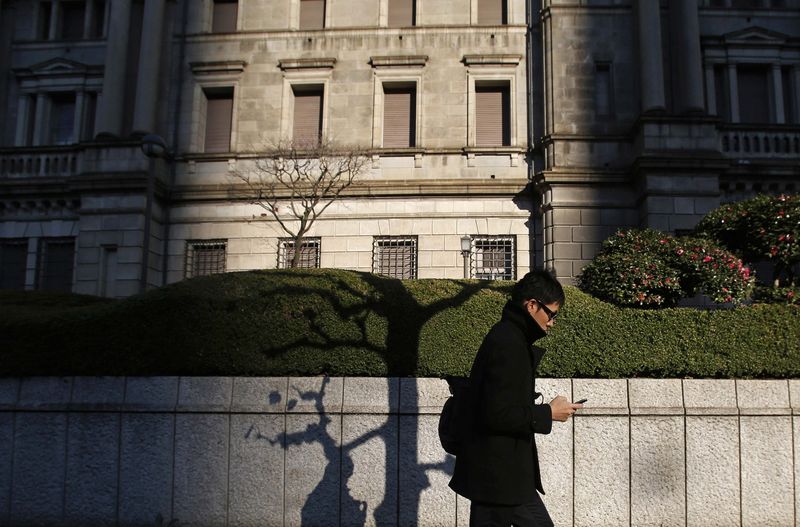By Leika Kihara
TOKYO (Reuters) - The Bank of Japan is likely to cut its core consumer inflation forecast for the coming fiscal year to possibly below 1 percent at a policy review next week, say three sources familiar with its thinking.
A lower forecast to reflect a fresh slide in oil prices would be a sharp downgrade from the central bank's current forecast of 1.4 percent for the year beginning in April, and push it further away from its 2 percent target.
Market expectations that the BOJ would cut its inflation forecast have been growing, but few analysts anticipate a reduction to below 1 pct. Such a move is likely to reinforce expectations that it will expand its already massive stimulus programme again in coming months.
However, the BOJ is seen largely maintaining its inflation forecast of 1.8 percent for fiscal 2017, the sources said, allowing it to argue that Japan is still on track to achieve the target - albeit at a disappointingly slow pace.
"A sharp cut in next fiscal year's inflation forecast is unavoidable due to the oil effect," said one source on condition of anonymity.
"The key is whether improvements in the broad price trend will continue and how the oil move affects inflation expectations," another source said.
While the revision may heighten pressure on the BOJ to expand its already massive monetary stimulus programme, it is uncertain whether the bank will ease policy at its rate review on Jan. 28-29, analysts say.
"The chance of additional easing is heightening. Wage hike negotiations (between labour unions and companies) don't look promising. Inflation expectations are weakening, too," said Masamichi Adachi, senior economist at JPMorgan (N:JPM) Securities.
"We're not sure whether the BOJ will ease next week or wait a bit longer. But it probably has no choice but to act sometime by mid-year."
The BOJ has said it will look through the impact of oil in gauging the broad price trend, which it sees as improving with consumers becoming more accepting of price hikes.
But some BOJ policymakers are becoming increasingly worried that plunging oil costs and the subsequent slowdown in consumer prices may hurt already waning inflation expectations, and discourage companies from raising wages.
If they see such second-round effects as threatening Japan's path towards achieving 2 percent inflation, an expansion of stimulus next week becomes a real possibility, the sources said.
Many analysts polled by Reuters earlier this month expected the BOJ to hold off on easing at least until April.
The BOJ's current price forecasts, made in October, are based on the assumption that oil price falls will push down next fiscal year's core consumer inflation by 0.2 percentage point.
Global oil prices have fallen more than 40 percent since October.
A draft estimate may boost that negative contribution by up to 0.8 point and argue that when stripping away the effect of oil, inflation will stay around 1.5 percent, the sources said.
The inflation forecasts won't be finalised until the BOJ compiles a median of each board member's estimates on Jan. 29.
Core consumer prices, which excludes fresh food but includes energy costs, rose 0.1 percent in the year to November. Analysts polled by Reuters expect core consumer inflation to hit 0.9 percent in next fiscal year and 1.3 percent the following year.
